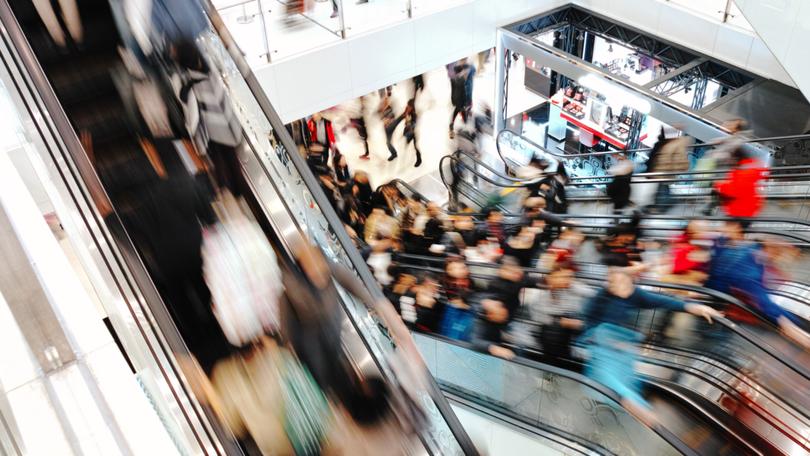Australians saving $320 each month by cutting back on luxuries as consumer stress begins to ease: NAB
Consumers are saving hundreds of dollars each month as they cut back on luxuries and discretionary spending amid a tough cost-of-living squeeze. But is there respite ahead?

Australians are saving about $320 each month by cutting back on little luxuries and discretionary spending — with Gen Z leading the charge.
New figures from National Australia Bank to be released on Thursday show nearly six in 10 Australians are cutting back on eating out at restaurants, while just over half aren’t spending as much on treats like snacks, coffee and entertainment and nearly five in 10 say they’re reducing their spending on entertainment, food delivery and trips in the car to save petrol.
West Australians are the least concerned about the national and global economies, the quarterly consumer sentiment survey reveals, while those in South Australia and the NT are most concerned.
Sign up to The Nightly's newsletters.
Get the first look at the digital newspaper, curated daily stories and breaking headlines delivered to your inbox.
By continuing you agree to our Terms and Privacy Policy.Overall, people are less stressed about their health, job security, funding retirement and government policy. It’s the first time stress measures on these metrics has fallen since late 2022.
Worries about the cost of living are still present but have eased for the third consecutive quarter as NAB personal banking chief executive Rachel Slade said many people were taking an increasingly sophisticated approach to fine-tuning their spending.
“Carefully cutting back might mean a small tweak to spending on coffees and food delivery or making holiday plans that are more budget-conscious to prioritise things for themselves, their kids or their family,” she said.
The results come amid two years — and counting — of financial pressure since the Reserve Bank of Australia started hiking interest rates in May 2022 to counter runaway inflation that pushed up prices for everything from groceries to services like insurance and telecommunications. Though inflation has now substantially eased, it is still well above levels the RBA would like, prompting speculation the central bank will keep rates on hold for some months to come.
NAB reported a 62 per cent jump since the middle of last year in customers using tools on its app and internet banking that categorise transactions to better identify where their direct debit spending is occurring.
Elsewhere, the bank reports four in 10 people are putting extra money into savings and offset accounts and one in five paying down debt.
This comes despite all customers reporting an increase in their personal cost of living over the past three months, including across income bands.
Again the bank reported far fewer consumers aged over 65 cut or cut back spending in all areas other than trips in the car and charitable donations. Women were more likely to cut back spending than men.
Lower-income consumers were more likely to cut spending on food or skip meals, insurance cover and charities.
Those over 65 expect to spend more over the next three months on household utilities, transport and medical expenses, but interestingly those between 50 and 64 expect their spending on home improvement, personal goods and entertainment to be curtailed.
